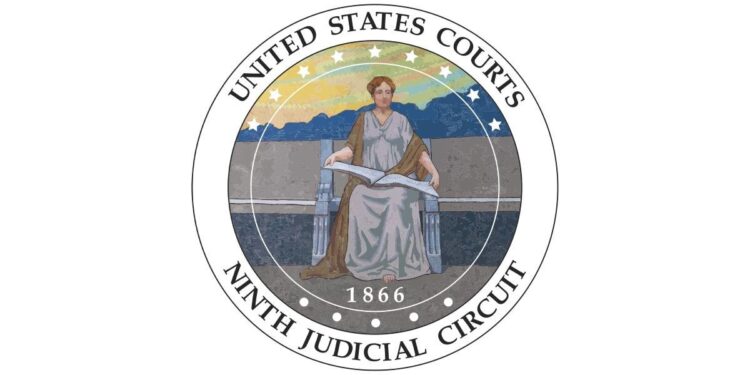When can an employer be held responsible for the statements of its employee? This question, which often arises in employment discrimination cases, was recently the subject of a spirited debate amongst judges on the U.S. Court of Appeals for the Ninth Circuit. In the case, captioned Weil v. Citizens Telecom Servs. Co., LLC, No. 16-35813, 2019 WL 1891796 (9th Cir. Apr. 29, 2019), the majority of the three-judge panel ruled against the employer, holding that the district judge should have held the employer accountable for the damaging statements of a particular employee. The dissenting judge argued that the district judge had acted well within his discretion in refusing to hold the employer accountable for the statements. Ultimately, the disagreement amongst the judges helps highlight the relative complexity of a particular rule of evidence, Federal Rule of Evidence 801(d)(2)(D).
Before getting into the facts of Weil, a brief overview of the relevant rule is in order. Under Rule 801(d)(2), an out-of-court statement of an opposing party may be offered against that party. Fed. R. Evid. 801(d)(2). But what qualifies as the statement of an opposing party? Rule 801(d)(2) identifies five different types of “opposing party” statements.
The type of statement at issue here is the statement of an “agent” or “employee.” Specifically, under Rule 801(d)(2)(D), if three elements are met, a statement by a party’s agent or employee may be treated as if it were made by the party itself. First, the “relationship” element—the declarant must technically qualify as an agent or employee of the party. Second, the “temporal” element—at the time the declarant made the statement, he or she must have been the agent or employee of the party. Third, and most critically, the “scope” element—the statement must be about a matter within the scope of the relationship (e.g., custodial staff can’t talk about CEO matters and vice-versa). The plain text of the rule captures all three elements, carving out a hearsay exception for a statement “made by the party’s agent or employee on a matter within the scope of that relationship and while it existed.” Fed. R. Evid. 801(d)(2)(D).
The theory behind this hearsay exception is simple. Because agents and employees typically have the best interests of their employers at heart (at least theoretically), they are not likely to say something that hurts their employers unless it is actually true.
In Weil, as in most cases involving this hearsay exception, the fight was about the “scope” element. And more granularly, how a change in an employee’s job scope (e.g., the employee transitions from Position A to Position B), impacts the application of the exception. In short, if a declarant currently in Position B talks about a matter that (1) happened while the declarant was in position A and (2) at the time it happened, was within the scope of Position A, does such a statement fall within the exception?
In Weil, the plaintiff, David Weil, sued his employer for, among other things, failing to promote him because of his race (East Indian) and gender (male). When the employer identified non-discriminatory reasons for its promotion decision, the burden shifted to Weil to establish that these reasons were just “pretext,” window dressing hiding the discriminatory motive.
Weil sought to meet his burden by relying on an out-of-court statement made by a fellow employee. The employee, “L.H.” had previously held a managerial position (Position A) and had interviewed Weil for the potential promotion. Before a decision was made on the promotion, however, L.H. was moved to a non-managerial position (Position B). Ultimately, the company promoted a white woman. At his deposition, Weil testified that, after he was passed over for the promotion, L.H. told him that “she tried to get me into the [new] role” but that he “had three things that were against me, and her exact verbiage – I remember this clearly – is ‘You have three things going against you. You’re a former Verizon employee, okay. You’re not white. And you’re not female.’”
The majority held that, although L.H.’s statement, at the time it was made, was on a matter outside the then-current scope of her employment, it could nevertheless fall within Rule 801(d)(2)(D). As the majority explained, “a statement may concern a matter within the scope of employment—even though the declarant is no longer involved with that particular matter when the statement is made—so long as the declarant was involved with that matter at some prior point in his or her employment.” Weil, 2019 WL 1891796, at *3. The majority then gave a practical basis for its ruling.
“To read the Rule otherwise could lead to absurd results. For instance, if a supervisor—just after being promoted—made a statement admitting to a discriminatory motive for terminating an employee the day before, the alternative reading of the Rule would exclude that statement, merely because the statement concerned a matter that was perhaps no longer within the scope of that supervisor’s employment. Such a reading disregards the agency principles on which the Rule is predicated and would potentially allow employers to avoid liability by merely changing employees’ positions or narrowly redefining the scope of their employment. Accordingly, we read the third element of the Rule to require that the statement be made while the employment relationship still exists, without regard to the declarant’s specific scope of employment at the time the statement is made.” Id. at *5 (9th Cir. Apr. 29, 2019)
The dissent’s criticism focused primarily on the timing of L.H.’s statement. The dissent argued that because L.H. had moved to Position B before the promotion decision was made, the district court acted within its discretion when concluding that the statement did not even concern a matter within the scope of L.H.’s previous position. The dissent suggested that the district court was entitled to ask for more foundation (e.g., testimony from L.H. that, after her move to Position B, she nevertheless participated in the promotion decision). The dissent summed up its position as follows: “Rule 801(d)(2)(D) is not so restrictive that it would limit party admissions to principals but is also not so generous as to allow employees to speak for their employers on matters that their employers had deliberately removed from the scope of their authority.”
Although both positions are well stated, in my view, the majority has the better of the arguments here. Based on Weil’s testimony, one could infer that L.H. was sharing with Weil her personal input into the decision-making process. That input was clearly relevant to the question of whether the employer had discriminated against Weil. L.H.’s transition to a new position before the promotion decision should only impact the weight of her statements, not their admissibility. Put another way, this is the stuff of cross-examination.
Still, the Weil case is a reminder that the application of Rule 801(d)(2)(D) can be quite complex, and lawyers should be prepared to develop deposition testimony in a way that best positions them to argue for admission or exclusion.
A link to the Weil decision is provided below.











